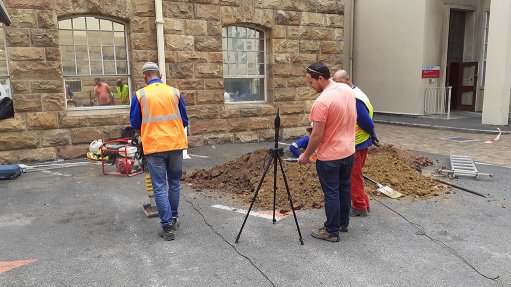
NOISE DEFENDERS Machoy places significant importance on the role of acoustics and acoustic engineers, advertises in journals and liaises with environmental practitioners throughout Africa
With the acoustics industry experiencing little to no growth, owing to new project developments being halted, acoustic consulting engineering practice Mackenzie Hoy Consulting Acoustics Engineers (Machoy) principal engineer Terry Mackenzie-Hoy argues that stringent noise control regulations, sets of approved acoustic standards and test centres can help boost growth in the industry in Africa.
“For the industry to succeed, there must be a market. For a market to exist, noise control regulations must be enforced. The Occupational Health and Safety Act requires that, before issuing ear protectors to staff, noise should be reduced using engineering solutions. However, this doesn’t often happen.”
He adds that universities that generally conduct these solutions and testing compete with the private sector to create noise control solutions. “This competition is not beneficial, and solutions that stem from it are not practical.”
Mackenzie-Hoy suggests that universities should rather, in collaboration with government, work on establishing a set of “approved acoustics standards”.
Additionally, test centres for this purpose should also be established, particularly amid the inactivity of standards information provider the South African Bureau of Standards’ test facility and the closure of University of Cape Town’s Central Acoustics Laboratory, Mackenzie-Hoy points out.
“We need a Central African acoustics lab and training facility, which can do tests and train African people.”
He highlights the significant challenge of clients’ neglecting the importance of adhering to acoustic standards in built projects, as many prefer to use unqualified “acousticians” instead of qualified consulting engineers, as they are significantly cheaper.
Quantity surveyors are reducing budgets to cut costs, and often eliminate acoustic finishes or replace them with inadequate finishes. Mackenzie-Hoy lastly argues that acoustic engineers are often not considered for built jobs, consequently resulting in the onus being on interior designers, who may not have the required knowledge to implement noise-reducing engineering solutions.
Machoy puts effort into convincing architects and project managers about the importance of ideal acoustics and acoustic engineers, while advertising in journals and reaching out to environmental practitioners throughout Africa.
The company also conducts acoustics courses – two of which have been presented in Africa and six locally over the past two years – that are approved by engineering body Consulting Engineers South Africa, Mackenzie-Hoy concludes.